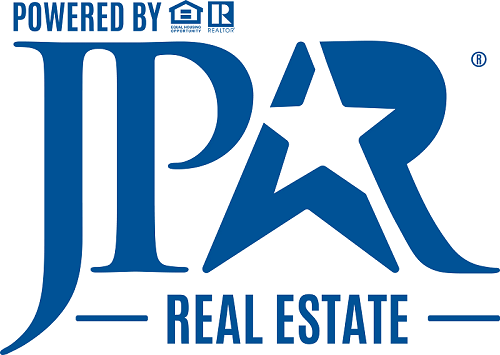
Real estate markets are constantly shifting, and one of the key factors that influences the buying and selling process is whether the market is a buyer’s or seller’s market. In Frisco, Texas, understanding these differences can significantly impact how you approach real estate transactions, whether you’re buying or selling. Let’s explore the five key differences between a buyer’s market and a seller’s market in Frisco, and what each scenario means for you as a homeowner or a potential buyer.
1. Supply and Demand: The Core of Market Dynamics
The fundamental difference between a buyer’s market and a seller’s market lies in the relationship between supply and demand.
- Buyer’s Market: In a buyer’s market, there are more homes available for sale than there are buyers interested in purchasing them. This surplus of inventory gives buyers more choices and leverage in negotiations. For instance, if Frisco has a high number of homes on the market, it may take longer for sellers to find interested buyers, and they might have to offer incentives or lower their asking price to attract attention.
- Seller’s Market: In a seller’s market, the opposite is true. Demand outpaces supply, meaning there are more buyers than available homes. This shortage of inventory puts sellers in the driver’s seat, as buyers may compete for the limited properties, driving up prices and reducing the seller’s need to negotiate.
What This Means for You: If you’re a buyer in a buyer’s market, you have the advantage of time and choices, allowing you to negotiate a better deal. As a seller, you may have to wait longer for offers and potentially lower your price. In a seller’s market, as a homeowner looking to sell, you can expect to receive multiple offers quickly and potentially sell your home at or above your asking price.
2. Home Prices: Affordability vs. Profitability
Home prices fluctuate significantly depending on whether it’s a buyer’s or seller’s market.
- Buyer’s Market: In a buyer’s market, with more homes available, prices tend to drop. Buyers are in a position to negotiate lower prices, and sellers may be forced to reduce their listing prices to stay competitive. This makes it an ideal time for buyers to purchase a home, as they can often find a better deal.
- Seller’s Market: In a seller’s market, home prices rise due to the scarcity of available properties. Buyers are often willing to pay more for homes, sometimes even above the listing price, just to secure a property in a competitive market. As a seller, this means you can maximize your profits by selling your home at a higher price than you would in a buyer’s market.
What This Means for You: Buyers looking for affordable homes will find better deals in a buyer’s market, while sellers should wait for a seller’s market if they want to maximize their profit potential. On the flip side, buyers may need to act quickly and be prepared to pay more in a seller’s market, while sellers in a buyer’s market may need to adjust their pricing expectations.
3. Time on the Market: Days on Market (DOM)
Another key difference between a buyer’s market and a seller’s market is how long homes typically stay on the market.
- Buyer’s Market: Homes in a buyer’s market tend to stay on the market for longer periods. Since there are fewer buyers relative to the number of homes available, it takes longer for a home to sell. Sellers in this scenario may need to be more patient and prepared for their homes to be listed for weeks or even months.
- Seller’s Market: In a seller’s market, homes sell much faster. Because there are more buyers than available properties, listings can go under contract in a matter of days or even hours. This speed is driven by competition among buyers, and homes that are priced right often sell quickly.
What This Means for You: If you’re selling a home in a buyer’s market, be ready for a longer wait time, and consider making your listing stand out with upgrades or pricing strategies. In a seller’s market, homes move quickly, so buyers need to be decisive and prepared to act fast when a property becomes available.
4. Negotiation Power: Who Holds the Upper Hand?
The negotiation process plays out differently in buyer’s and seller’s markets.
- Buyer’s Market: In a buyer’s market, the buyer holds more negotiating power. Since there are more homes than buyers, sellers are often more willing to make concessions. Buyers may be able to negotiate lower prices, ask for repairs, or request that the seller covers closing costs.
- Seller’s Market: In a seller’s market, the seller has the upper hand. With multiple buyers potentially interested in the same property, sellers are less likely to entertain negotiations and may stick to their asking price. Buyers might even offer more than the listing price or waive contingencies just to make their offer more attractive.
What This Means for You: As a buyer, you have more leverage in a buyer’s market, which can help you get a better deal on a home. However, in a seller’s market, you may have to compromise or sweeten your offer to compete with other buyers. Sellers, on the other hand, can be more demanding in a seller’s market and often receive offers that meet or exceed their expectations.
5. Market Trends: Timing Your Move
Understanding market trends is essential for both buyers and sellers. These trends can signal the transition between a buyer’s and seller’s market.
- Buyer’s Market: A buyer’s market may follow periods of economic slowdown, increased housing inventory, or rising interest rates, which make it harder for buyers to qualify for loans. In this scenario, home prices may drop, and sales slow down.
- Seller’s Market: A seller’s market often occurs during times of economic growth, lower interest rates, or population influx, as seen in growing cities like Frisco. As more people move into the area and compete for homes, demand increases, pushing prices higher.
What This Means for You: Timing is critical in real estate. Buyers looking for lower prices and more choices should aim to purchase during a buyer’s market. Sellers, on the other hand, should wait for a seller’s market to maximize their profits. Keep an eye on local market trends to determine the best time to make your move.
Final Thoughts: What to Do in Frisco’s Real Estate Market?
Whether it’s a buyer’s or seller’s market in Frisco, understanding these key differences is crucial for making informed real estate decisions. In a buyer’s market, you have more time to explore your options and negotiate better deals, while in a seller’s market, competition among buyers can drive up prices and reduce your need for concessions as a seller.
As a buyer in a seller’s market, being prepared to act quickly and make competitive offers is essential. On the other hand, sellers in a buyer’s market should focus on making their properties stand out and setting realistic prices. By paying close attention to market trends, you’ll be able to time your moves wisely, ensuring the best possible outcome for your transaction.
At Gravitas Property Group, we understand the complexities of the Frisco real estate market and are here to guide you through the process. Whether you’re buying or selling, our team is ready to help you navigate any market condition to achieve your goals.


